Exceptional is the Word
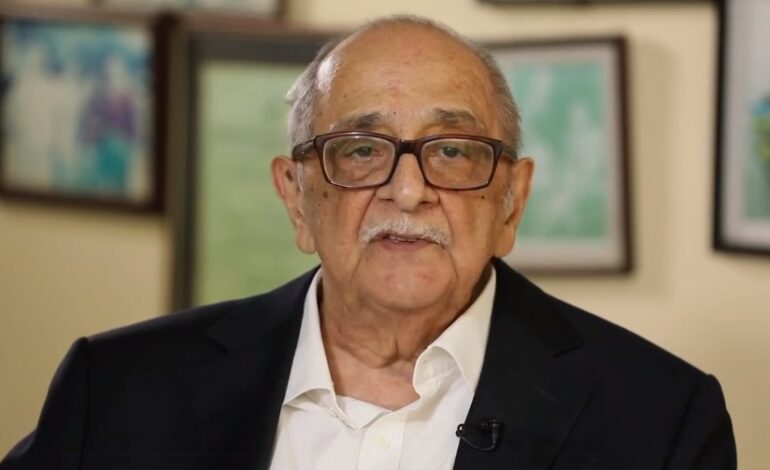
On Fali S. Nariman (96), who passed away yesterday, February 21, 2024
One reason why I attended the International Press Institute’s award-giving function on February 9, 2024, was to hear Fali S. Nariman, who was the chief guest. He lamented that we were passing through a phase when the freedom of speech, considered sacrosanct, was under threat. He was confident that he would not have to face the period when even our thoughts would be controlled by the state. True to his word, he has moved on to a world where justice would prevail at all times.
It was over two and a half decades ago that Fr. Xavier Vadakkekara of the Indian Currents invited me to take part in a seminar on secularism and represent Christianity. I accepted it more in deference to his wish than for any love for public speaking. With learned Imams and Pandits representing other religions and faiths, I found myself inadequately qualified to represent a 2000-year-old tradition and nearly 40 million Indians who profess the Christian faith.
I do not remember much about the seminar held at St. Columba’s School in New Delhi, but I vividly remember the brilliant speech Nariman delivered as the chief guest on the occasion. Unlike others who blabbered, he came prepared with a written text and spoke eloquently about how proud he was to be an Indian in secular India. Suddenly, he found himself paperless and speechless with the pedestal fan blowing them away from his open folder on the lectern. As one of us gathered the papers together and put them back in sequence, he went extempore and delineated on a case the Supreme Court had heard and decided.
A schoolboy in Kerala, who belonged to Jehovah’s Witness, refused to sing the National Anthem as his religion forbade him from singing in praise of anyone other than his Creator. The authorities concerned went by the rule book, and he was expelled from the school. Finally, the case reached the apex court, which considered the fact that whenever the national anthem was sung, he always stood like any other student and did not show any disrespect to either the song or the singing. In its abundant wisdom, the court upheld the boy’s plea that he be allowed to study in the school.
The effect the anecdote had on the audience, mostly from the minority communities, had to be seen to be believed. They knew that Nariman spoke from the heart, for he too belonged “to a minority community, a microscopic, wholly insignificant minority.” He was as concerned as the organisers of the seminar were about the threat fundamentalists were posing to the secular character of the country. As John Dayal commented, “Nariman could have earned a couple of lakhs of rupees if, instead of spending his precious time preparing the speech, he had devoted it to taking up a new case.” Nariman knew that nothing was more important to him than secularism.That is why he spent the whole of that afternoon with us thinking aloud about the “fearsome pace” at which the “population of the dinosaurs” in various religions was increasing.
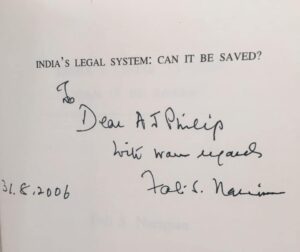
As he puts it colourfully, “Dinosaurs in one religious camp give impetus to breeding them in another. Scientists tell us that it was a great meteorite that finally destroyed all the dinosaurs on this Earth. If so, I like to think that the meteor was the symbolic wrath of God.” Given this backdrop, it was not at all surprising that Nariman concludes his autobiography Before Memory Fades with these lines: “I have never felt that I lived in this country at the sufferance of the majority. I have been brought up to think and feel that the minorities, together with the majority community, are integral parts of India. I have lived and flourished in a secular India. In the fullness of time if God wills, I would also like to die in a secular India.”
Death should have been far from his mind as the country still needed his services. Even the street dogs in the area where he stays would love him to be around forever. This I learnt when I spent a whole afternoon at his house. I had gone there with our Chandigarh lawyer to consult him on a case the Punjab and Haryana High Court had suo motu registered against me and a reporter of The Tribune.
As he was not at home when we reached there, I spent the free time trying to count the cats and the large brood of kittens for which there were separate “residential quarters” inside his compound. I realised that counting the kittens was an impossible task for they were too many and they did not remain static to enable an enumeration. When it was time for supper, I found a servant feeding them minced meat.
As the cats were being fed, a large number of stray dogs began lining up in front of his gate. They did not bark, nor quarrel among themselves. Then the same servant placed plates in front of each of them. From a huge pot, he served some “kichri”-type food which the dogs partook of and left as silently and orderly as they assembled. I was told that the dogs in the area were assured of one wholesome meal a day.
It is jokingly said that if you have a few millions of rupees to hire the services of Nariman, you can murder anyone and get away with it. No, money is not the only determinant for him. As my memory goes, he did not charge a single penny, though he pored over my case and suggested many changes in the affidavit I and the reporter concerned had to file in the High Court. What mattered to him was that The Tribune Trust was headed by Justice R.S. Pathak, a former Chief Justice of the Supreme Court of India.
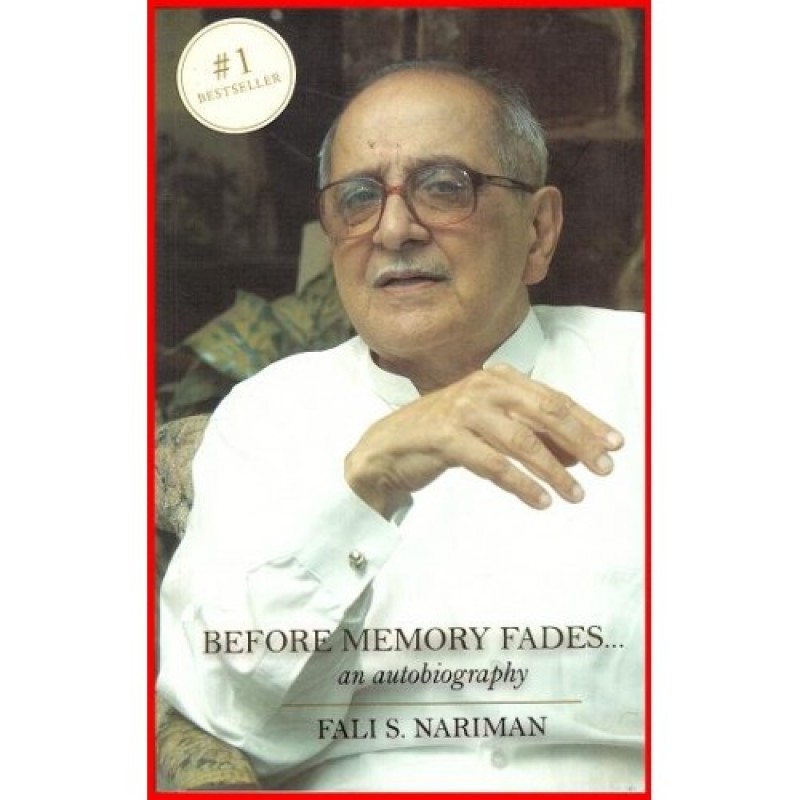
Even so, I did not know how much Nariman respected Pathak until I read his autobiography. I will come to that in an instant. Both of them are reviled for a case in which they played a major role. The reference is to the Bhopal gas tragedy case in which Nariman represented Union Carbide and Justice Pathak who took the initiative to broker a deal under which the multinational paid $470 million (Rs 615 crore) in one go.
He devotes a whole chapter to discuss the case, which, as he told Karan Thapar on CNN-IBN’s “Devil’s Advocate,” he would not have accepted, “If I had to live my life all over again, as a lawyer, and the brief came to me, and I had foreknowledge of everything that later came in, I would certainly not have accepted the civil liability case which I did.” Read together, the interview and the book disprove many who believe that Justice Pathak and Nariman had let the country and the victims down.
There is a lot of showy, chest-beating on Bhopal these days. Even those who did nothing to mitigate the hardship of the Bhopal victims all these years had suddenly woken up to the need to bring the late Warren Anderson to India, get billions of dollars from Union Carbide, and give every citizen of Bhopal millions of rupees. They also knew that all this is to hoodwink the public.
Nariman makes the valid point that the $470 million settlement was upheld by the Supreme Court, not once but thrice under different chief justices. He quotes the court, “the voluminous documentary evidence placed on the record of the present proceedings does not make a case of inadequacy of the amount necessitating a review of the settlement.” Allowance has to be made for the fact that Rs 615 crore was a big amount in 1989 (Those who drew a salary those days should compare it with their present salary to know how big the amount was 30 years ago.)

Many would have forgotten that the quick settlement did not, however, reach the victims as quickly as Justice Pathak wanted. When the amount remained in the bank account of the Supreme Court, it grew by Rs 1 lakh every day by way of interest. In the discussions on Bhopal, people are reluctant to admit the fact that there are a large number of bogus claimants. I know some people living in TT Nagar, which is far away from Union Carbide, who initially made claims of damage in the hope they, too, would get some money.
Nariman hits the nail on the head when he says why the amount was inadequate: “The inadequacy arises because there was a very large sum of money which was sought to be distributed amongst people living in certain areas not by reason of what they suffered but their living in those areas.” I know that local politicians encouraged their constituents to file claims with the result that what the real victims should have got was distributed among a large number of people.
In other words, the amount shrank. To drive home the point, it would be worth pondering why no one dies of old age in the affected area. Every death even now is attributed to the poisonous gas that leaked from the Union Carbide factory. Even today what is cited as Union Carbide’s fault are quotations from newspaper articles and books written by journalists like Dan Kurzman of A Killing Wind fame (Indian Express, July 3, 2010).
Do we have a foolproof case for revisiting the settlement of 1989? The answer is, alas, no, but our leaders, including the then Law Minister Veerappa Moily, whom the Chief Justice of India described as one of the most enlightened leaders, while releasing his book on the Ramayana, is not ready to admit the truth. They want the Bhopal victims to have eternal hope. Nariman brings out in a few lines the greatness of Justice Pathak, who as Chief Justice took the job of finding judges for the Supreme Court so seriously that he tried to judge the calibre of High Court judges whenever he visited states. It was he who found the potential in M.N. Venkatachaliah, who was not even the senior-most in the Karnataka High Court at that time.
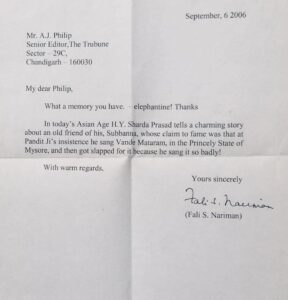
As I read this, I remembered Justice Pathak inviting me to his house so that he could know me better. He came to Chandigarh and personally introduced me to the staff when I joined the Tribune. After handing over the appointment letter, he asked me, “Do you know the meaning of the word Tribune?” Instead of answering, “Sorry, I do not know,” I asked him foolishly, “Does it originate from the word ‘Tribunal?” “No, the Tribune was an official in the Roman Empire, and it was his job to protect the interests of the common man,” answered Justice Pathak. It was his way of telling me that my primary job was to take care of the interest of the readers of The Tribune.
How could such a noble person ever acquiesce in a settlement if it was not in the interest of the people? And how could Nariman, who promptly resigned as additional solicitor general of India when the Emergency was clamped on the country, ever be a party to it? I found his autobiography as enjoyable as a beautiful novel, and he went up in my esteem as one of India’s greatest sons.
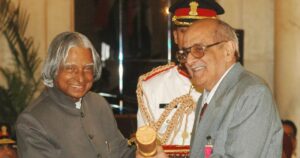
A few years later, I had an occasion to meet him and his wife Bapsi when I interviewed him for Darshana TV. It was my first such interview. When his wife passed away four years ago, I wrote an obituary that elicited a warm response from him. In his death, the country has lost a great lawyer who believed that the future of the country is not in the glorification of any one community but in the glorification of We, the People of India that is Bharat.


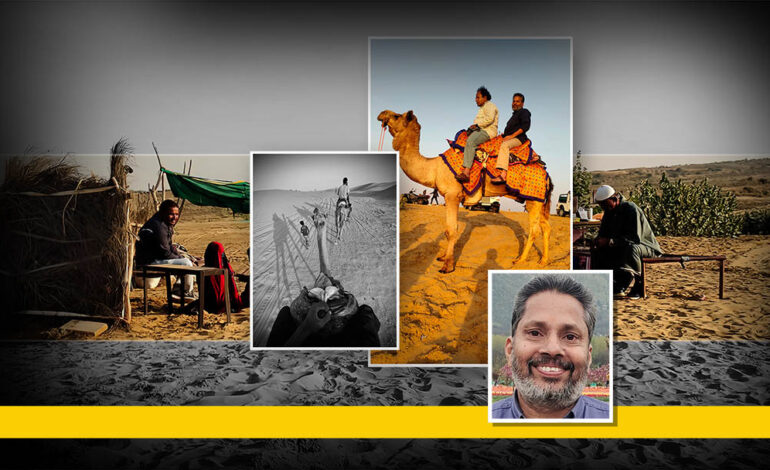
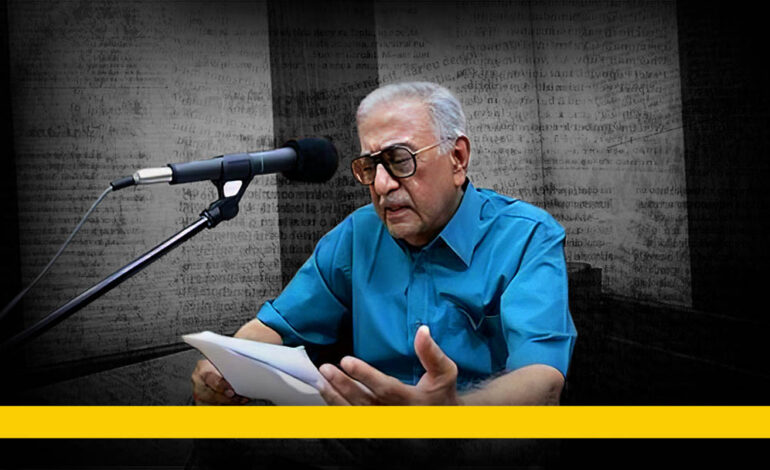
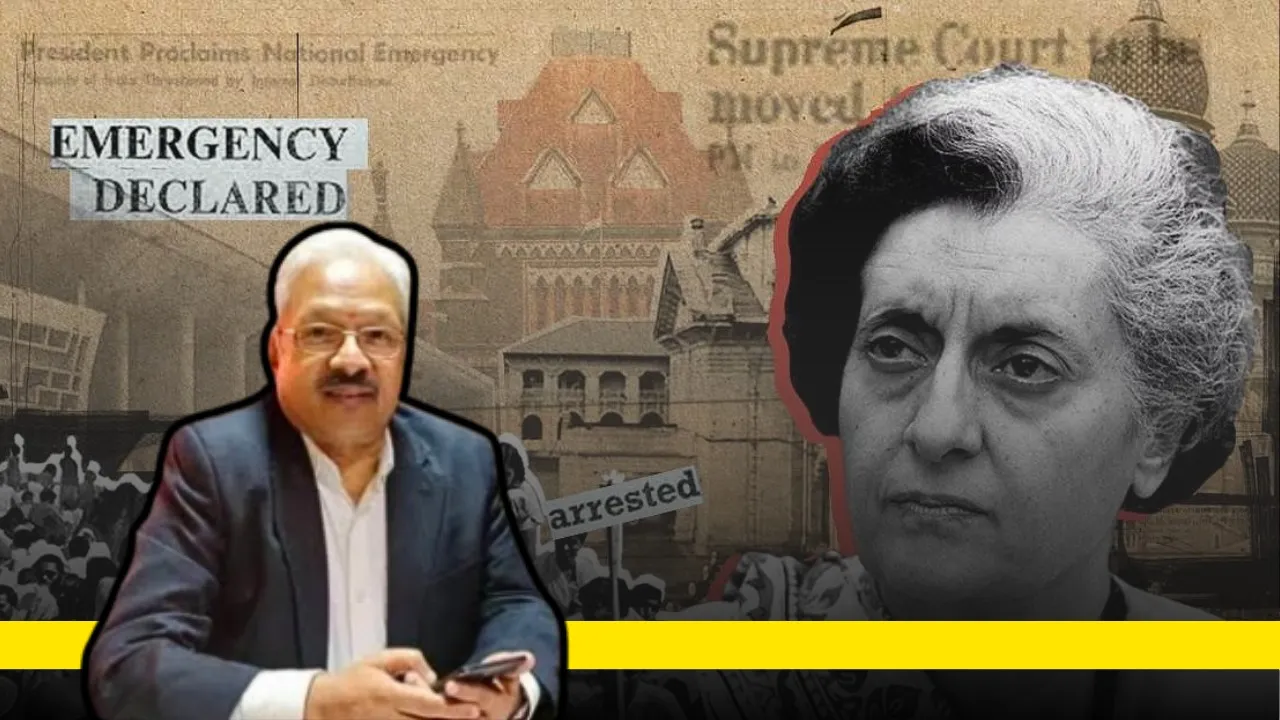
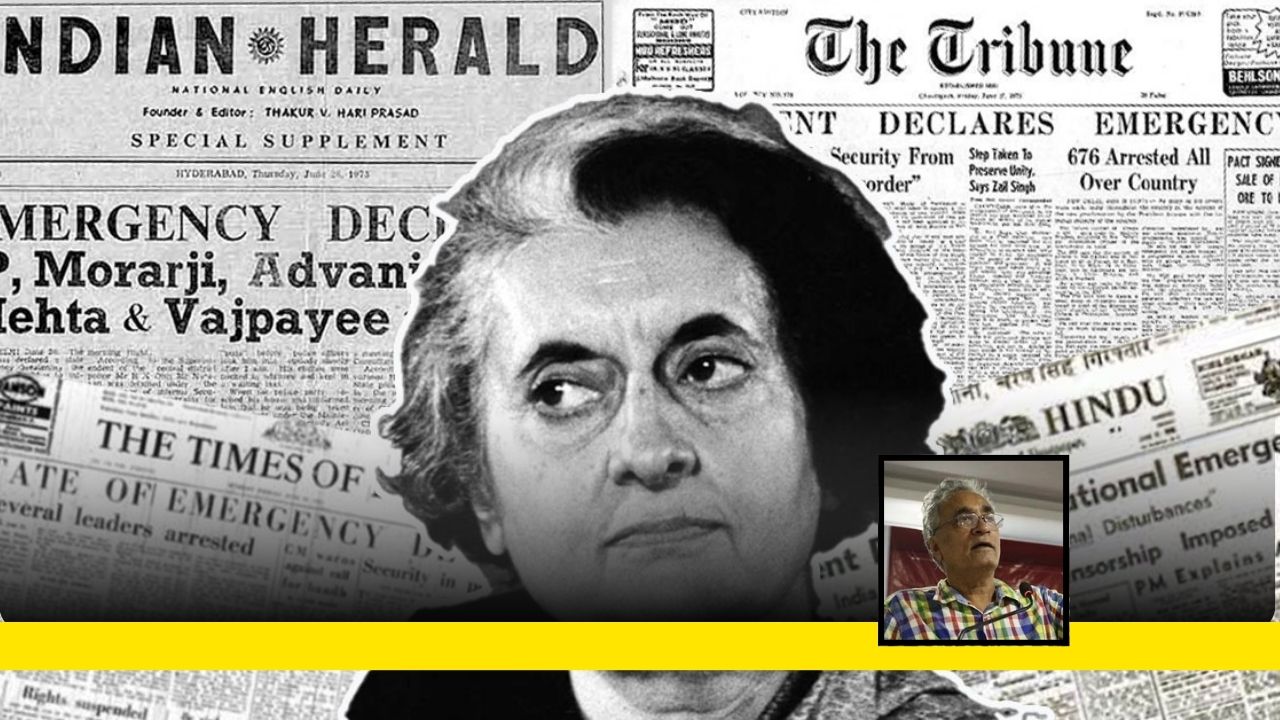
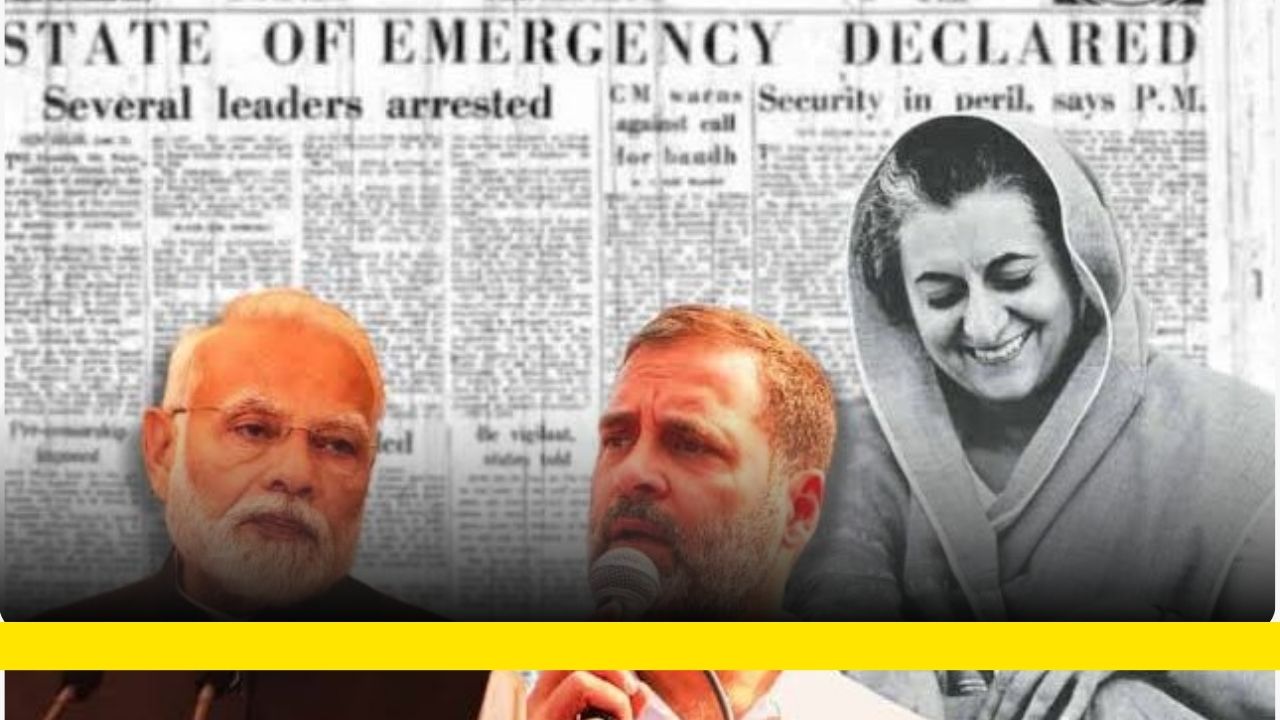
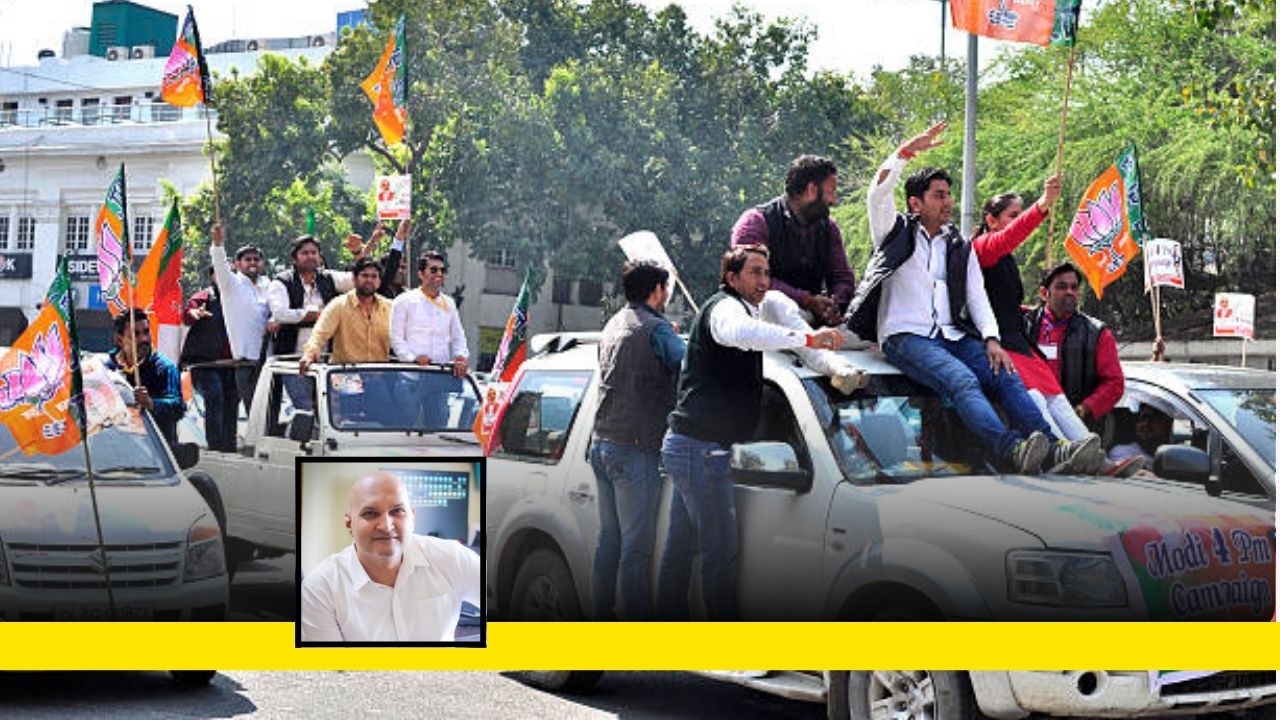


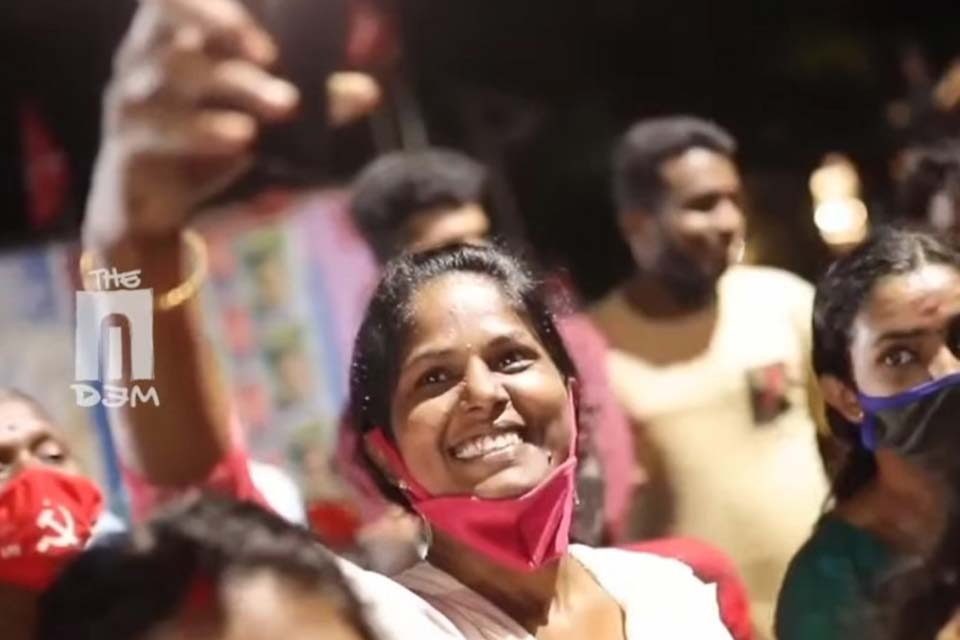

Philip sir, what a beautiful way of capturing the doyen of the legal fraternity. If i remember correctly you too were one of the speakers in the dice along with Mr. Nariman of happy memories in the same seminar at
St.Columba school auditorium. Yes his going home to the creator,indeed a great loss for the nation .
Yes, I was also a speaker.
Very informative article Philip Sir
I was also able to attend the International Press Institute’s award-giving function on February 9, 2024 at Constitution club and hear Sr. Adv. Fali S Nariman.